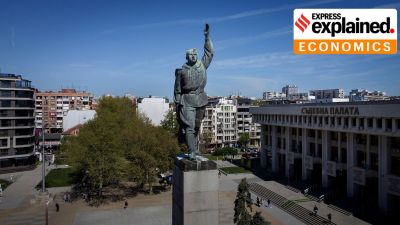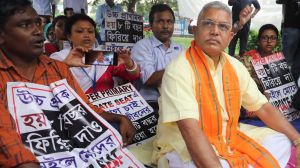BlackBerry service shutdown delayed
BlackBerry users can rejoice 8212; for now. District Judge James R. Spencer reiterated his long-standing threat of a shutdown, saying durin...

BlackBerry users can rejoice 8212; for now. District Judge James R. Spencer reiterated his long-standing threat of a shutdown, saying during a hearing on Friday that he was surprised and disappointed that BlackBerry maker Research in Motion Ltd had not settled the case with technology company NTP Inc, which won a 2002 jury verdict finding that RIM had infringed on five patents.
The judge might issue such an order as early as next week, but lawyers watching the case said it was clear that he was trying to force the two sides to negotiate. 8216;8216;The judge desperately wants the two parties to settle this,8217;8217; said Bob Yoches, a patent lawyer in Washington, DC.
8216;8216;What he8217;s essentially saying to each side is: How good a gambler are you?8217;8217; Although NTP has the legal advantage, it is under pressure to settle. The US patent office has issued preliminary or final rejections of all five patents including a final rejection issued on Friday.
NTP may appeal final rejections. In addition, the US Supreme Court is considering whether to bar automatic injunctions as a remedy in patent cases, especially those in which money can compensate for wrongdoing. But Spencer isn8217;t waiting for the high court to rule.
8216;8216;RIM has dodged a bullet today,8217;8217; said Brian Ferguson, another Washington, DC, patent lawyer. 8216;8216;But it8217;s very clear the bullet is coming their way.8217;8217; A settlement could be reached in an afternoon, Ferguson said, but both sides have dug in so far that if either gives an inch, 8216;8216;It will be seen as a capitulation.8217;8217;
Last year, a tentative 4.5 million agreement fell apart. NTP now wants 126 million for past damages and, reportedly, close to 1 billion to settle future claims. Spencer could fashion an order that neither side likes, but the burden probably would fall much more on RIM, which counts 3 million US BlackBerry users among its 4.3 million customers worldwide and controls 50 per cent of the market.
Industry analyst Eugene Signorini of the Yankee Group, a Boston research company, said that regardless of what happens, RIM is taking some hits in customer relations. A plan to work around the patents by sending new software to customers is going to be difficult and time-consuming to achieve, and there probably will be glitches, he said. In addition, he said, chief competitor Palm Inc8217;s, with 30 per cent of the market, is pushing harder for customers for its Treo handset, as are newcomers Nokia and Microsoft Corp.
If Spencer imposes an injunction, the effect probably will be delayed for 30 days to give RIM a chance to work around the patents and possibly appeal the decision. It also gives customers a chance to decide what to do. 8212; LAT-WP
- 01
- 02
- 03
- 04
- 05































